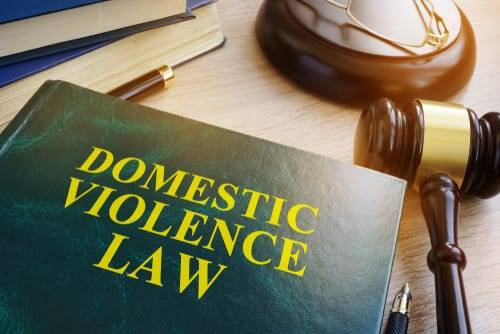In South Carolina, criminal domestic violence (CDV) is a serious charge that can lead to jail time and other penalties. Individuals who claim to be victims of domestic violence can also obtain emergency protection orders under South Carolina’s Protection From Domestic Abuse Act. This can have substantial negative ramifications well before a case goes to trial. But, while criminal domestic violence allegations can have life-altering consequences, there are also many potential defenses available, and hiring an experienced defense attorney promptly is the best way to protect yourself to the fullest extent possible.
10 Potential Defenses to Criminal Domestic Violence Charges in South Carolina
If you have been charged with criminal domestic violence, your attorney will need to quickly review the facts of your case to determine what defenses you have available. Depending on the circumstances involved, these defenses may include:
1. False Allegations
Many cases of alleged criminal domestic violence involve false allegations. Spouses, domestic partners, and other family members may fabricate accusations for various reasons. Unfortunately, due to the prevalence of legitimate domestic violence cases, the police and prosecutors are forced to take all allegations seriously. Oftentimes, it will be possible to uncover false allegations by speaking with family members and other witnesses. An experienced criminal defense lawyer will be able to conduct a thorough investigation to demonstrate that you have been falsely accused.
2. Self-Defense
A significant number of criminal domestic violence cases also involve self-defense. If a member of your household attacked you and you were forced to defend yourself, you are not a crime under South Carolina law. To assert self-defense, your attorney will need to be able to show that you acted in response to provocation and that you reasonably believed that you needed to use physical force to protect yourself from serious injury or death.
3. Defense of Others
If you reasonably believed that you needed to use physical force to protect someone else from serious injury or death, then you may be able to assert the criminal defense of “defense of others.” Defense of others is similar to self-defense, but it justifies using force to protect someone other than yourself. For example, if a spouse or partner is abusive toward a child, then the use of force may be justified if it is the only reasonable option available to prevent harm.
4. No “Offer or Attempt” to Cause Physical Harm
In some cases, criminal domestic violence allegations do not involve physical force but rather the “offer or attempt” to cause physical harm. If you have been accused of threatening a member of your household, swinging at a household member, or otherwise committing an act of domestic violence that does not involve direct physical contact, the prosecution must be able to prove that you threatened or attempted to cause physical harm beyond a reasonable doubt.
5. The Alleged Victim is Not a “Household Member”
For an assault, threat, attempted assault, or other criminal act to constitute domestic violence, it must be committed against a “household member.” Section 16-25-10(3) of the South Carolina Code of Laws defines “household member” to include only:
- A spouse or former spouse
- A parent of a shared child, or
- A current or former domestic partner.
If the person accusing you of domestic violence claims to be your child’s other parent or claims to be your domestic partner, but he or she is not your child’s parent or does not reside with you, then you cannot be convicted of criminal domestic violence under South Carolina law. However, it is still possible that you could be convicted of another crime (i.e., ordinary assault), so this is a defense that must be asserted very carefully.
6. Unlawful Search or Seizure
When responding to a domestic violence call, the police generally have the authority to do what is necessary to protect the alleged victim. However, they must still observe the alleged perpetrator’s constitutional rights. If the police searched your home or seized evidence in violation of the Fourth Amendment’s prohibition on unreasonable searches and seizures, this could serve as a key defense in your criminal domestic violence case.
7. Failure to Read Your Miranda Rights
In addition to conducting constitutional searches and seizures, the police must also conduct constitutional interrogations. If the police interrogated you in custody without reading your Miranda rights, this might provide you with a defense as well.
8. Inadmissible Evidence of Guilt
If the police obtained evidence against you in an unlawful manner, this does not mean that your case will be thrown out automatically. Instead, any evidence obtained in violation of your constitutional rights is considered legally inadmissible, which means that prosecutors cannot use it to build their case against you. However, to have the prosecution’s evidence deemed legally inadmissible, you will need your attorney to file a motion in court.
9. Inadequate Evidence of Guilt
Even if the prosecution’s evidence is admissible in court, this still does not guarantee a conviction. To convict you, the jury must conclude that the prosecution has proven your guilt beyond a reasonable doubt. If the prosecution’s evidence of guilt is inadequate, then you cannot be convicted regardless of the facts at hand.
10. Eligibility for a Diversionary Program
Finally, if you are at risk of facing a conviction at trial, one option you may have is to seek placement in a diversionary program. If you are eligible and complete the program successfully – then your charge and conviction will be expunged from your record.
Speak with North Charleston Domestic Violence Attorney Rad S. Deaton Today
Rad S. Deaton is an experienced North Charleston criminal defense attorney representing individuals charged with criminal domestic violence. If you have been arrested and need to speak with a domestic violence attorney in Charleston, SC, you can call 843-225-5723 or contact us online for a free consultation.






